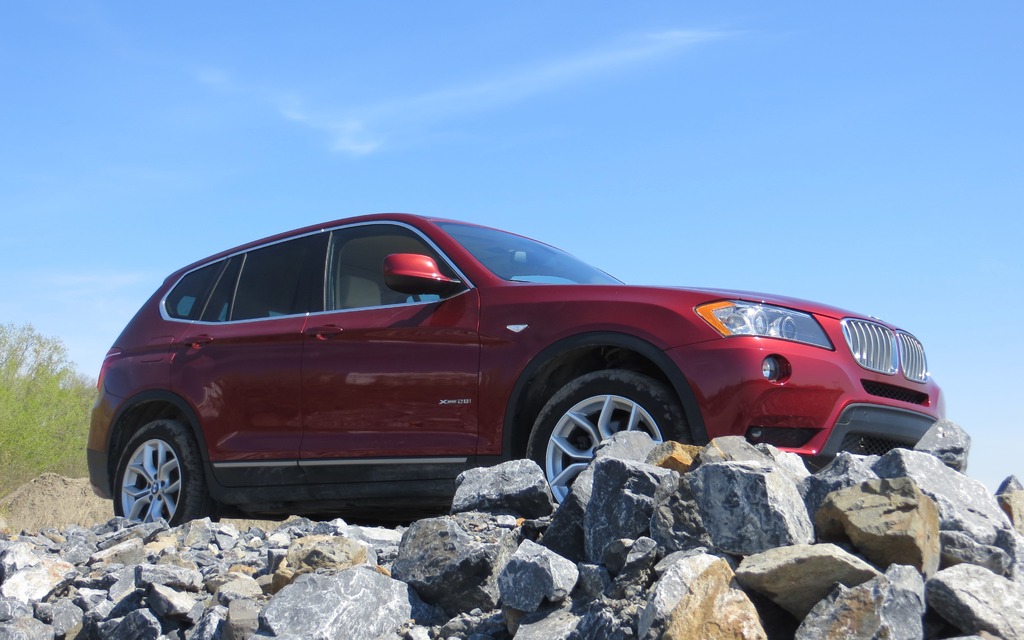2013 BMW X3 xDrive28i: Whither The Wagon?


The urge to push into as many product niches as possible is one that has driven significant profits for BMW over the course of the past decade. Once focused almost exclusively on blending sport with luxury, in recent years BMW has grown increasingly comfortable attaching the Roundel to a wider range of vehicles, including hybrids and SUVs of all sizes.
Yes, it’s possible to make an SUV that offers reasonable handling and excellent comfort – as the 2013 BMW X3 xDrive28i proves quite well – but there’s also the question of how much compromise must be made in order to satisfy the widest spectrum of potential buyers. The compact BMW X3 SUV in many ways illustrates the give-and-take that occurs when designing a vehicle with such a broad mission statement.
Read also
All-New Turbo Drivetrain
The biggest news for the 2013 BMW X3 xDrive28i is the fresh engine sitting under its muscular hood. Replacing last year’s 3.0-liter inline-six is the same 2.0-liter turbocharged four-cylinder unit that can also be found pulling duty in the BMW 328i. The turbo motor maintains the departed unit’s 240 horsepower but it manages to bump torque up to 260 lb-ft, and it also improves the SUV’s fuel economy to 8.5 l/ 100 km in mixed driving. Those facts and figures look great on paper – but in the real world, the turbocharged engine displays some troubling characteristics that detract from what could be considered a premium experience.
For one thing, despite sharing a platform with its 3 Series sedan sibling, the BMW X3 is significantly heavier, a characteristic that reveals itself in several ways. Although the vehicle’s eight-speed automatic transmission offers a Sport mode, pinning the throttle to the floor results in a second of delay, followed by acceleration that is best described as meagre, at least when launching off of the line. Gathering speed while already underway is accomplished with greater confidence, but the autobox is still reluctant to kick down. In addition, applying more throttle while cruising in top gear elicits an unsteady grumble from the engine and exhaust system, culminating in a roughness and lugging that belies the car’s luxury standing.
ECO Pro mode, which reduces engine response and discourages spirited driving is almost unusable with the vehicle, and its automatic engine start/stop feature is as intrusive here as it is in other BMW applications. Fortunately, it can be turned off with the simple push of a button.
Comfortable Ride, Spacious Inside
Despite not being a speed demon like its 300 horsepower xDrive35i line-up mate, the BMW X3 xDrive28i does manage to come through with a very comfortable ride in all manner of driving conditions. The vehicle’s suspension might not do the best job at corralling its top-heavy body roll during hard cornering, but it certainly eats up broken pavement with alacrity. The X3 comes across as a competent highway cruiser, and the SUV kept me feeling fresh no matter how much time I spent behind the wheel. Its one downfall is its electric power steering system, an affectation that feels almost completely numb and which doesn’t transmit any information to the driver about what the front wheels are actually doing in any particular driving situation.
The X3’s passenger compartment is far larger than one might expect given the vehicle’s compact status. The current X3 is actually as big as the previous-generation X5, which means extensive amounts of passenger room front and rear and a cargo area that is generous even without folding down the back seat. The materials used throughout the cabin walk the line between entry-level and premium, and while I had no real issues navigating the iDrive system using the rotary controller on the center console I found it difficult to figure out which voice commands the SUV’s limited vocabulary would accept.
Limited All-Terrain Prowess
There was once a time when the primary purpose of an SUV was to allow for drivers to maintain forward momentum even when they ran out of road. Those days are now behind us, but that hasn’t stopped automakers from building vestigial off-road capabilities into modern crossovers and sport-utility vehicles. The BMW X3 xDrive28i comes with standard all-wheel drive, a feature which is extremely useful during the winter months, but the SUV’s lack of ground clearance severely impedes its ability to triumph over all but the meekest of trail obstacles. Even muddy ruts proved a challenge for the X3, which scraped and complained its way across a set of half-hardened moguls at a construction site I visited. There’s a hill-holding feature that comes with the BMW, but I can’t imagine it ever being used as anything other than a novelty.
Not Quite A Wagon, Not Quite An SUV
The 2013 BMW X3 xDrive28i exists in the half-lit shadows between automotive categories. This crossover provides excellent daily utility from a cargo and people-moving perspective, is quite handsome in design, and consumes less fuel than one might expect from such a plus-size vehicle. On the other hand, it’s simply not fun behind the wheel given its tepid acceleration and disconnected steering, and its all-wheel drive system is essentially limited to handling slick pavement and providing extra traction in the snow.
The X3 could easily be replaced by an all-wheel drive wagon, a move that would have most families noticing only the increase driveway space and reduced fuel bills as the major differences between the two vehicles. In fact, BMW makes such a model – featuring an identical drivetrain – called the BMW 328xi Sports Wagon. It’s well worth test driving the more frugal, and just as capable wagon prior to committing to an X3 purchase, as you might be pleasantly surprised by what returning to the old family standard can do for you.








